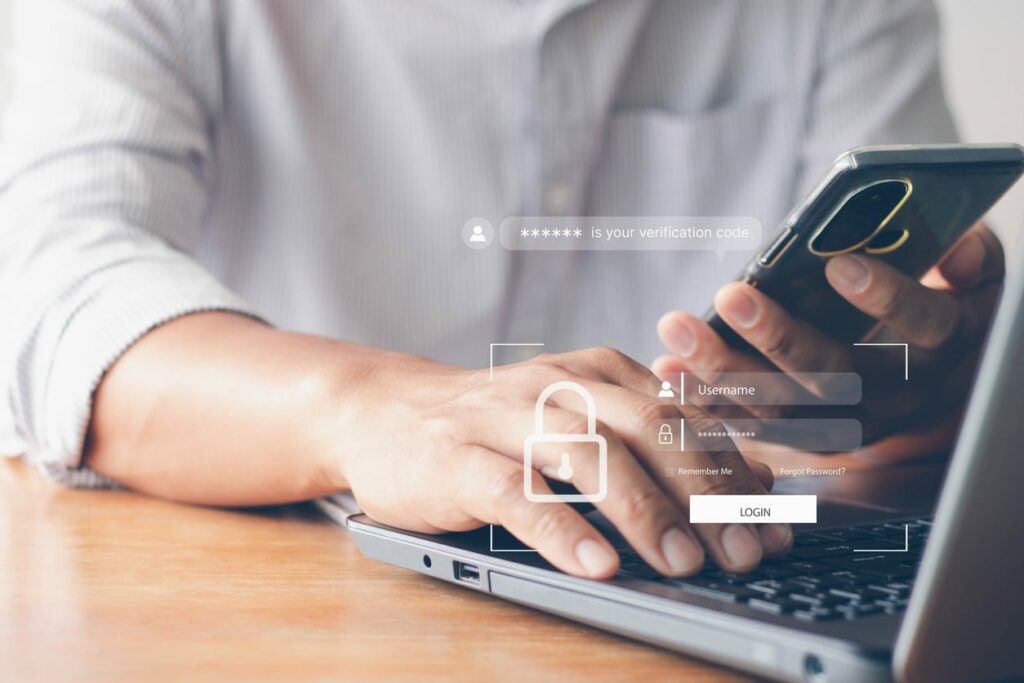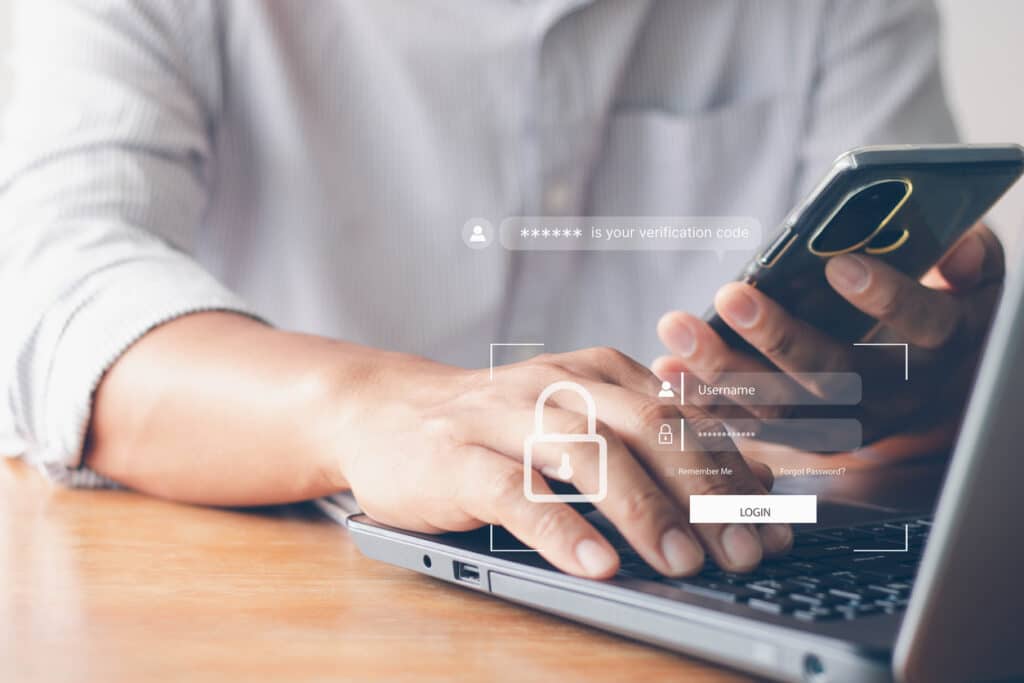Multi-Factor Authentication (MFA): A Cyber Insurance Must-Have


In today’s digital age, Multi-Factor Authentication (MFA) is becoming an increasingly important
tool for protecting your business’s online accounts and data. MFA adds an extra layer of
security by requiring users to provide two or more pieces of evidence, such as a password and
a code sent via text message, to verify their identity and is a highly-recommended
authentication method that can protect your business from potentially catastrophic and costly
cybersecurity risks.
In this post, we’ll take a deeper look into what MFA is, why it’s important, how it works and how
to best protect your business from becoming another cyber attack casualty.
What is Multi-Factor Authentication?
MFA is a security measure that helps protect your accounts by requiring more than one form of
authentication. When you attempt to log in, you will be asked to provide some combination of
credentials such as passwords, security tokens, biometric data, or a one-time code sent over
SMS or email. With multiple forms of verification, MFA makes it much harder for unauthorized
users to access your sensitive data and systems.
Why is MFA Important?
The biggest reason MFA is important is that you can’t afford to ignore it – the average cost of a
data breach is over $4 million. The nominal cost of implementing it along with the expense of a
breach makes it an easy win for your business from a cost-benefit perspective. Utilizing MFA is
an essential part of a comprehensive risk management strategy, as it ensures that your
business’s confidential information is kept secure and properly protected against unauthorized
access. Businesses should strive to implement MFA effectively to protect their operations from
potential threats and maintain effective data security standards.
How Does MFA Work?
There are three primary factors of authentication:
- Something you know, such as a password or a PIN number.
- Something you have, such as a key fob, one-time code, or a physical device.
- Something you are, such as a biometric signature like a voice or thumbprint.
Traditional passwords fall under “something you know”, which means they can be ascertained
through malicious methods such as keyloggers or hacking, and are a useful method of access
until the password is changed.
The most common, easily implemented method of MFA involves a one-time code associated
with the user that is only good for a short period of time (usually around 60 seconds). Although
this used to be provided through a physical key fob, it is much more commonly conducted
through a phone app or email message. If properly implemented, the code is only useful for one
login and provides a much higher bar for a bad actor to clear to access an account.
Ensure That Your Cybersecurity Bases Are Covered
MFA is a great way to provide a great deal of cybersecurity protection for only a little effort, and
there are great resources from the Cybersecurity and Infrastructure Security Agency and
PCMag on how to get it set up.
Cybersecurity overall is a game of layered mitigation efforts, and MFA shouldn’t be the only
route you take. Although MFA can reduce password compromise by up to 99.9%, no security
solution is 100% foolproof. That’s where cyber liability insurance comes in. Cyber liability
insurance can serve as the final layer of protection, protecting your business from financial
losses associated with a cyber attack.
When it comes to cyber liability insurance, many insurers are now requiring businesses to
implement MFA as a part of their security protocols. By doing so, businesses can reduce their
risk of a data breach and lower their insurance premiums.
Conclusion
Multi-factor authentication should be an essential component of your business’s security
strategy. With MFA, businesses can protect themselves from cyber attacks and the potential
financial fallout of a data breach, comply with regulatory standards, and potentially save money
on their insurance premiums. While no cybersecurity measure is perfect, implementing MFA
and cyber liability insurance can help significantly reduce the risk of a data breach and ensure
your business is covered.
If you’d like to explore your business’s unique cybersecurity risks and discuss how cyber liability
insurance can help, reach out to us – we’d love to talk!